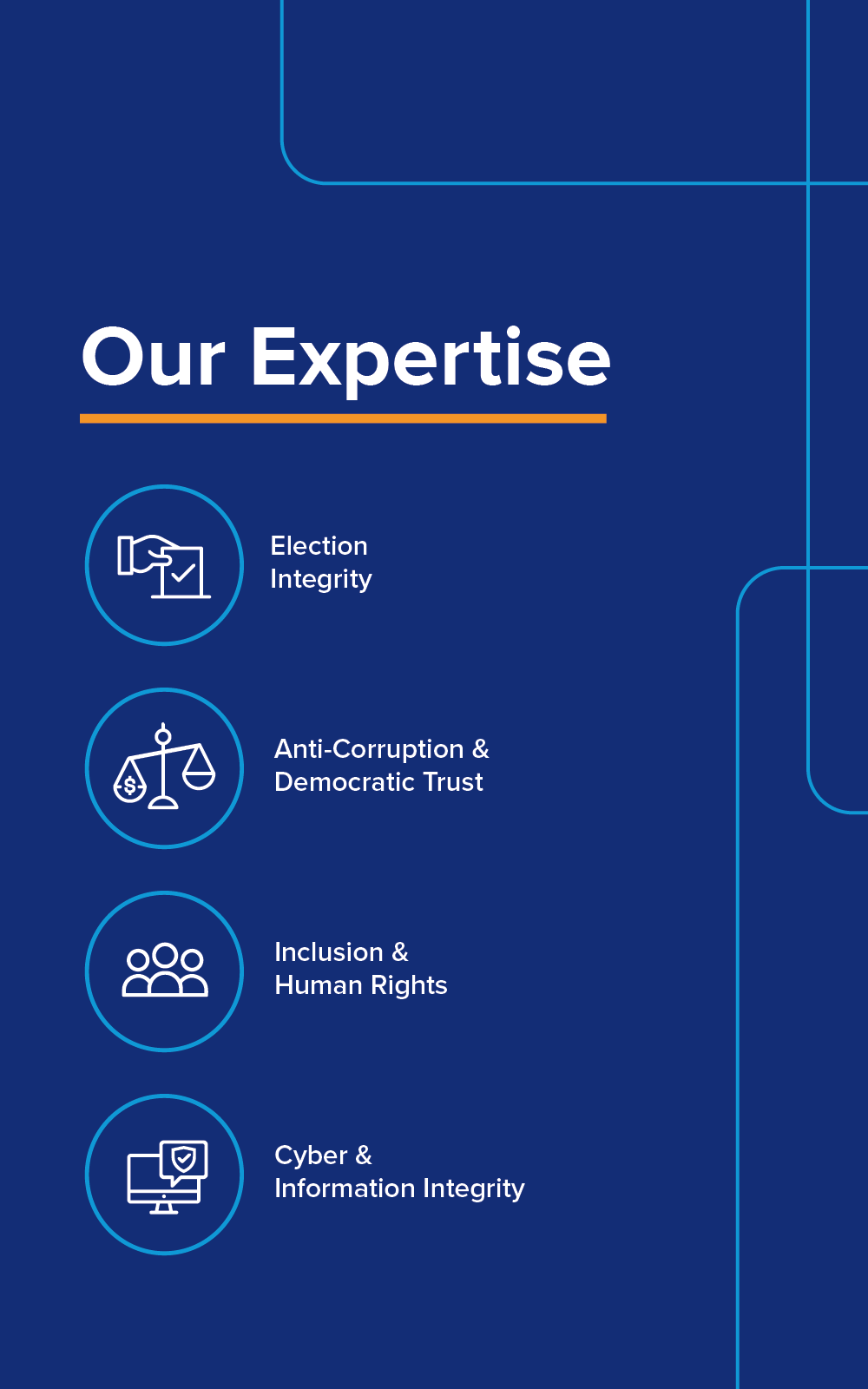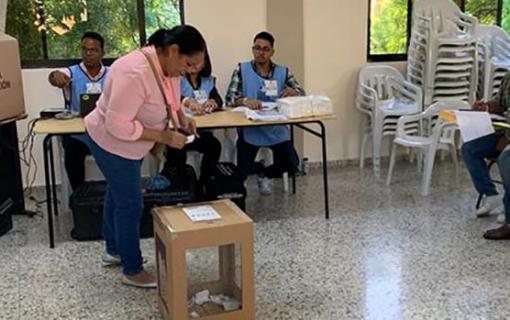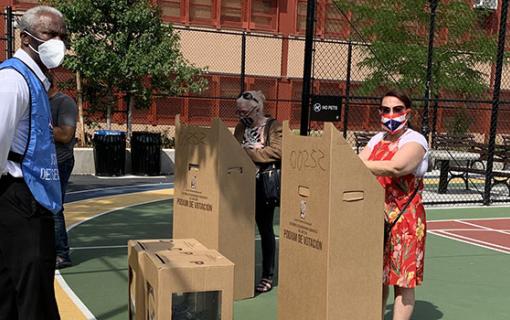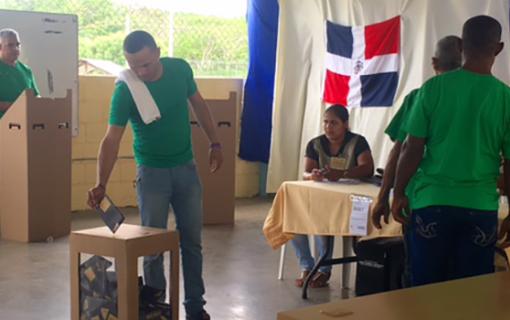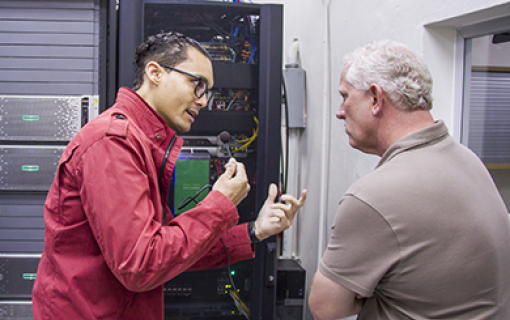Dominican Republic
Dominican politics have historically been characterized by corruption, clientelism and a general distrust in the political class and institutions. The success of the Dominican Republic’s 2020 general elections and the change in political leadership has generated momentum for change and improvements. To support this positive shift in the perception of Dominican democratic process, IFES, in partnership with local civil society organization Citizen Participation, conducted a post-election assessment which recommended modernization of the Central Electoral Board (Junta Central Electoral, JCE).
The assessment provided a comprehensive review of the challenges and barriers faced by the JCE and identified key stakeholders including women, youth, persons with disabilities and other members of civil society. Targeted analyses were also conducted to find specific areas of electoral practice that needed modernization and to analyze the impact of COVID-19 on the elections. Based on the findings of this post-electoral assessment, IFES provided training in electoral leadership to new appointees of the JCE and supported them on strategic planning to enable the new JCE members to draw a clear direction in the future. IFES also developed and disseminated a baseline survey outlining electoral barriers to Dominicans with different types of disabilities. Based on that work, IFES supported the JCE in developing an inclusion policy that was approved by the JCE’s board.
IFES has had a longstanding partnership with the people and democratic institutions of the Dominican Republic. From 2011 to 2015, IFES worked on a project designed to overcome barriers standing in the way of citizen participation in democratic processes throughout the Dominican Republic.
Our Global Expertise
